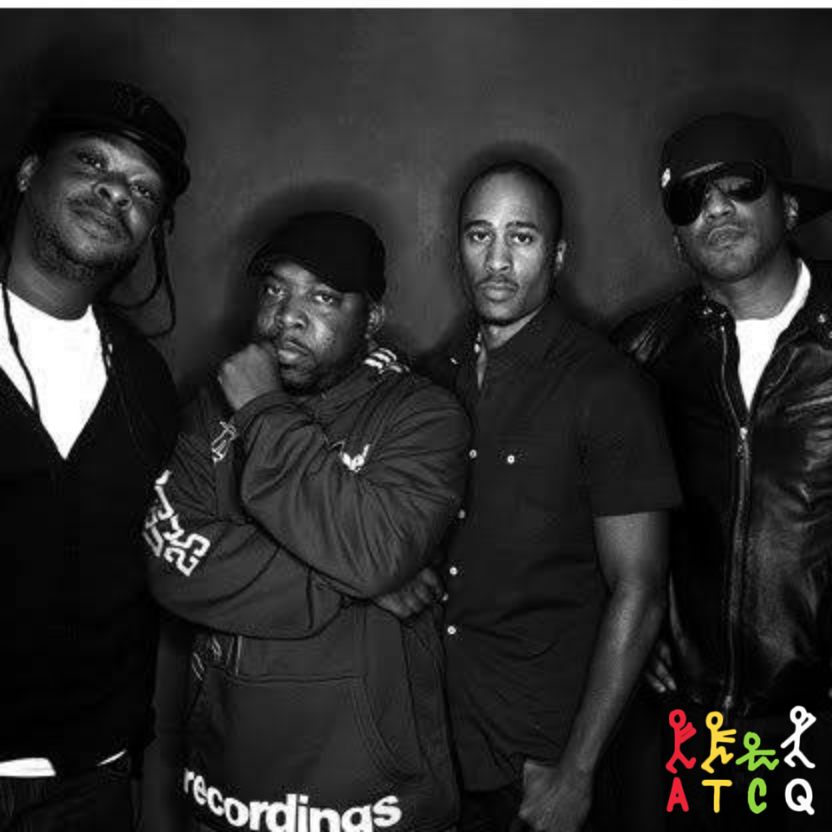HT: DW
A Tribe Called Quest, which is considered by some to the best hip-hop group ever, was formed in 1985 by childhood friends in St. Alban’s Queens. It broke up in 1998 and reunited in 2006. The original members were Jarobi White, Q-Tip, Phife Dawg and Ali Shaheed. White left the group after its first album was released in 1991. According to Wikipedia, he sporadically worked with the band after leaving and rejoined when it reunited. The group emerged from a “collective” called Native Tongues, which also produced De La Soul.

A Tribe Called Quest (Image: Facebook)
Wikipedia has an informative and long entry on the band. The theme through it and other profiles is that A Tribe Called Quest is a thinking person’s hip hop band. This is how John Bush starts his profile at AllMusic:
Without question the most intelligent, artistic rap group during the 1990s, A Tribe Called Quest jump-started and perfected the hip-hop alternative to hardcore and gangsta rap. In essence, they abandoned the macho posturing rap music had been constructed upon, and focused instead on abstract philosophy and message tracks.
Rolling Stone’s profile took the same approach:
…A Tribe Called Quest blazed alternative rap trails with a laid-back, witty, progressive style as well as innovative beats and enlightened lyrics that paved the way for the “jazz rap” of Digable Planets, Jungle Brothers, Us3 and other outside-the-box hip-hop artists.
A writer at Genius labelled A Tribe Called Quest the “Pink Floyd of hip hop.”
Forms of music that gain commercial success grow broader and more nuanced. Rock, for instance, can be divided into country rock, heavy metal, glam rock and others. Hip hop is no different. The genre has gotten a bad rap, so to speak, because of the high profile of often frightening gangsta rap. Not listening to the political and social commentary of A Tribe Called Quest, NWA or Public Enemy because of this label would like bypassing The Grateful Dead or The Moody Blues because of a distasteful for punk or heavy metal. It makes no sense. Indeed, it’s just an excuse.
This whole scene — the names of the players, the description of violence on the streets, the confrontational politics and the de-emphasis of musical instruments in favor of somtimes difficult-to-understand vocals — is challenging to many older listeners.
Perhaps the best approach to music that offers a level of discomfort is to think of it more as art than music. Older, middle class audiences are open to being discomforted by visual art, drama and literature. A high percentage of successful movies deal with very unpleasant and threatening topics. The audience understands that the goal is to provoke a visceral reaction and, subsequently, to make the viewers think. People are conditioned to do nothing but enjoy music. Thus, while the kids are considering which bands offer the best beats, parents should consider thinking about where A Tribe Called Quest and the other hip hop bands come from, what they are trying to say and how they are saying it. This is a different activity than singing along to “Box of Rain.” Both are legitimate and rewarding.
Above is “Can I Kick It?” (Another version of the song begins by sampling Lou Reed’s “Walk on the Wild Side.” I chose this version because it includes the video). Here are the lyrics. Below is “Buggin’ Out.”

